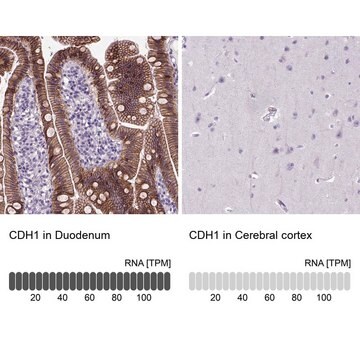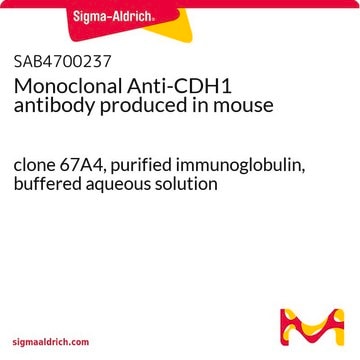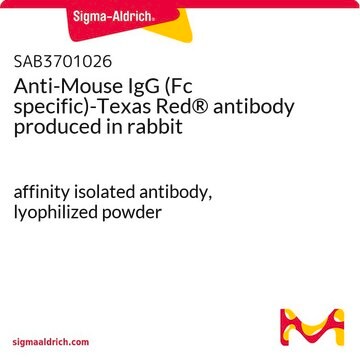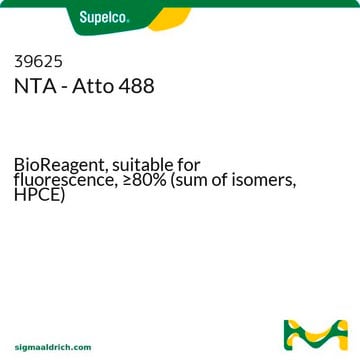C7855
Anti-Cdh1 antibody,Mouse monoclonal
clone DCS-266, purified from hybridoma cell culture
Synonyme(s) :
Anti-CDC20C, Anti-CDH1, Anti-FZR, Anti-FZR2, Anti-HCDH, Anti-HCDH1
About This Item
Produits recommandés
Source biologique
mouse
Niveau de qualité
Conjugué
unconjugated
Forme d'anticorps
purified from hybridoma cell culture
Type de produit anticorps
primary antibodies
Clone
DCS-266, monoclonal
Forme
buffered aqueous solution
Poids mol.
antigen 50 kDa
Espèces réactives
human
Concentration
~2 mg/mL
Technique(s)
immunoprecipitation (IP): suitable
microarray: suitable
western blot: 2-4 μg/mL using a HeLa cell nuclear extract
Isotype
IgG1
Numéro d'accès UniProt
Conditions d'expédition
dry ice
Température de stockage
−20°C
Modification post-traductionnelle de la cible
unmodified
Informations sur le gène
human ... CDH1(999)
Catégories apparentées
Description générale
Spécificité
Immunogène
Application
Actions biochimiques/physiologiques
Forme physique
Clause de non-responsabilité
Not finding the right product?
Try our Outil de sélection de produits.
Certificats d'analyse (COA)
Recherchez un Certificats d'analyse (COA) en saisissant le numéro de lot du produit. Les numéros de lot figurent sur l'étiquette du produit après les mots "Lot" ou "Batch".
Déjà en possession de ce produit ?
Retrouvez la documentation relative aux produits que vous avez récemment achetés dans la Bibliothèque de documents.
Notre équipe de scientifiques dispose d'une expérience dans tous les secteurs de la recherche, notamment en sciences de la vie, science des matériaux, synthèse chimique, chromatographie, analyse et dans de nombreux autres domaines..
Contacter notre Service technique








